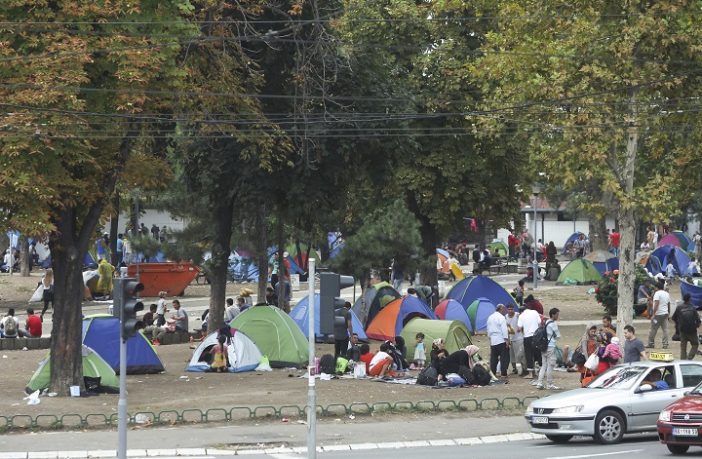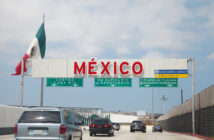The news for much of this year has been dominated, understandably, by COVID-19. Fears of terrorism seem to have been relegated to the backburner as many are concerned about their health, lockdowns, and the economic damage wrought by the coronavirus. However, recent acts of terror in France and Austria are a rude reminder of the fact that Islamist radicalism remains a serious threat. They also show that Jihadist terrorism is in many ways undeniably interconnected with mass immigration.
- On September 25, a Pakistani national – who had arrived in France only three years prior – attacked and wounded two people with a meat cleaver in front of the former offices of the satirical magazine Charlie Hebdo in Paris. According to BBC, “the attack came as a high-profile trial was under way of 14 people accused of helping two jihadists carry out the [January] 2015 attack on Charlie Hebdo, in which 12 people were killed.” An Algerian national and five others, “said to be of Pakistani origin,” were subsequently arrested in connection with the attack.
- On October 16, teacher Samuel Paty was beheaded near a school in a Parisian suburb for showing his students a controversial caricatures of the Islamic prophet Muhammed from the magazine Charlie Hebdo while teaching classes on the freedom of expression. The perpetrator, Abdoullakh Abouyedovich Anzorov, was an ethnic Chechen refugee who come to France from the Russian Federation as a child. He was shot dead shortly after the incident while violently resisting arrest. Sixteen people were taken into custody after the beheading.
- On October 29, Brahim Aouissaoui stabbed three people to death, including partially beheading an elderly female worshipper, at the Notre-Dame de Nice Catholic basilica in the southern French city of Nice. Aouissaoui arrived in Europe illegally from Tunisia – landing in Italy’s Mediterranean island of Lampedusa – and eventually made his way to France, crossing the border only two days before massacring the Nice churchgoers. Nice Mayor Christian Estrosi stated that the suspect had “repeated endlessly ‘Allahu Akbar’ (God is greatest),” while President Emmanuel Macron dubbed the murder spree an “Islamist terrorist attack.”
- On November 2, several attackers went on a rampage in central Vienna, the capital of Austria, using guns and knives, killing four people and injuring many others. One suspect, Kujtim Fejzulai, was shot dead by the police. He had been born and raised in Vienna to ethnic Albanian parents who had immigrated from what is now North Macedonia, and held both Austrian and North Macedonian citizenship. Fejzulai was an ISIS sympathizer and a convicted terrorist, having spent time in jail for attempting to travel to Syria to join the radical Jihadist group. Having been sentenced to 22 months in prison in April 2019, he had been released 14 months early last December because “he was considered a young adult and thus fell under the privileges of the Juvenile Court Act.”
A recent FAIR blog points out that such attacks are an obvious repudiation of lax, open-arms policies – towards both legal immigration and illegal migration – and, in particular, the “let-everyone-in-and-we’ll-sort-it-out-later” approach towards asylum. It should now be clear that keeping the floodgates into Europe open is reckless and exposes the citizens of European nations to danger. The need of politicians and activists to feel compassionate does not override the right of ordinary people to feel safe.
Islamist terrorism and radicalism in Western Europe also lays bare certain inconvenient, politically incorrect truths. One is that there is a great deal of Islamist-inspired hatred and contempt for the “infidel” West and its values in many Muslim-majority countries (e.g., see here and here). Moreover, some of those countries are hotbeds of terror. Immigrants and refugees do not automatically leave such sentiments at the door upon entering France, Austria, the United States, or any other Western nation.
The other problem concerns assimilation, or rather the lack thereof – especially among immigrants from Islamic-majority nations in Europe. While some terrorists (such as the Nice church attacker) are very recent arrivals, and a minority consists of European converts to radical Islam, many are either immigrants or refugees themselves, or their European-born children who not only failed to assimilate, but in fact rejected Western society and doubled down on a rabidly anti-Western identity. No doubt overall numbers play a big role: why assimilate when immigrant enclaves are constantly replenished by a large, steady influx of newcomers? But surely, the radical Islamist sentiments which some immigrants bring with themselves also makes them unreceptive to assimilating.
The latest Islamist terror wave in Europe shows that mass migration – especially from regions where anti-Western sentiment is high – coupled with the lack of assimilation can be a truly lethal mix. This is why stricter vetting, significantly limiting mass migration, and cracking down on asylum fraud would make sense. Now that Europeans throughout the continent are once again being subjected to COVID-19 lockdowns or restrictions, there is no reason why boats with migrants should be allowed to land in Europe and the passengers allowed to roam free while given pro forma “exit slips” (the European equivalent of “catch and release”).




